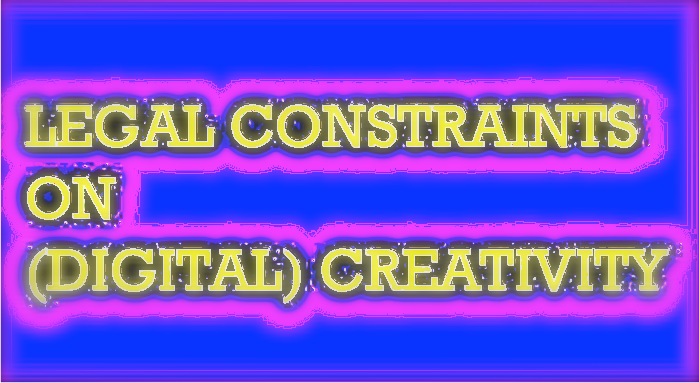The story can be found through this link: TMZ Sports: In praise of the site’s coverage of Ray Rice, Donald Sterling, and Jameis Winston.
Have one question to add to this: Should courts care when they are making judgments about defamation or privacy that the information was paid for?
Thoughts?
jon


 Legal Constraints on (Digital) Creativity
Legal Constraints on (Digital) Creativity
I don’t think courts should discriminate on a case regarding stolen information if it were bought as opposed to if it was not. If something is taken from somebody and then sold to a third party, the person who it is stolen from is still entitled to their property if it is recovered. I.E. You lose a phone, it gets sold on craigslist and then the police track it down to the buyer and return it to you.
However, as there are laws protecting journalists and information that is deemed important to the public discourse, there does seem to be a way for media conglomerates to get around this. On a personal level I don’t really like the precedent of people selling information to the highest bidder.
Of course, if the defendant can prove that the information was sold to him in a legal binding transaction by the original party who initially owned the information, then it should be legal.
Also forgive my ignorance but from what we have learned in class it seems that it is easier to get away with this in the United States due to some of the laws we talked about. I guess this segues into my next question; the Rob Ford video was bought by Gawker from whoever had filmed it. Gawker is an American company but the video was originally produced and allegedly came from a Canadian source. Under which laws does such an issue apply, the American or Canadian.
Sorry if the last paragraph sounds obtuse.
I agree with Konstantine. I don’t think it matters whether the evidence was paid for or not. The video of Ray Rice and the audio of Donald Sterling are incontrovertible evidence of known or at least suspected events with damaging consequences. I think that paying for evidence -videos, letters, documents, audio-may walk across morally fragile territory. However, if the evidence is proof of a criminal act, especially one not fairly dealt with involving the power dynamics, shady dealings, and socio-cultural influence of the Ray Rice video, and the only way to publicly call the guilty to account in a timely fashion is to pay some money, I think it might actually be the right thing to do. In fact, I think it may be the only moral option and therefore must be taken. Like The New York Times said, “At its best, TMZ co-opts the sports world’s star machine to reveal deeper scandals about how society still privileges the rich, the famous, and—more often than not—the male.” Sounds like journalism to me.
I agree with both of you. Evidence is evidence. Whether it was paid for might impact credibility, just like the evidence of a plea-bargaining witness can be cast into doubt, but that’s about it.
Konstantine, your question of whether it is easier to get away with this in the U.S. than Canada is a challenging one. It does seem that way but there is nothing particular that I know of in Canadian law that makes it that way. As you will soon see we have essentially caught up with NY Times v. Sullivan which could have accounted for less media aggressiveness towards public figures. As well the U.S. Constitution indeed seems on a plain reading to be significantly more absolute on freedom of speech than is ours in Canada. But in many ways (copyright law since a series of 2012 Supreme Court of Canada decisions) we are less restrictive of expression than the U.S. These things are by their mature moving and moveable targets. But to try to answer your question as directly as possible, at this point in time any lesser aggressiveness in the Canadian media in going after public figures is probably related to cultural and historical factors only.
Hope this makes sense.
Jon